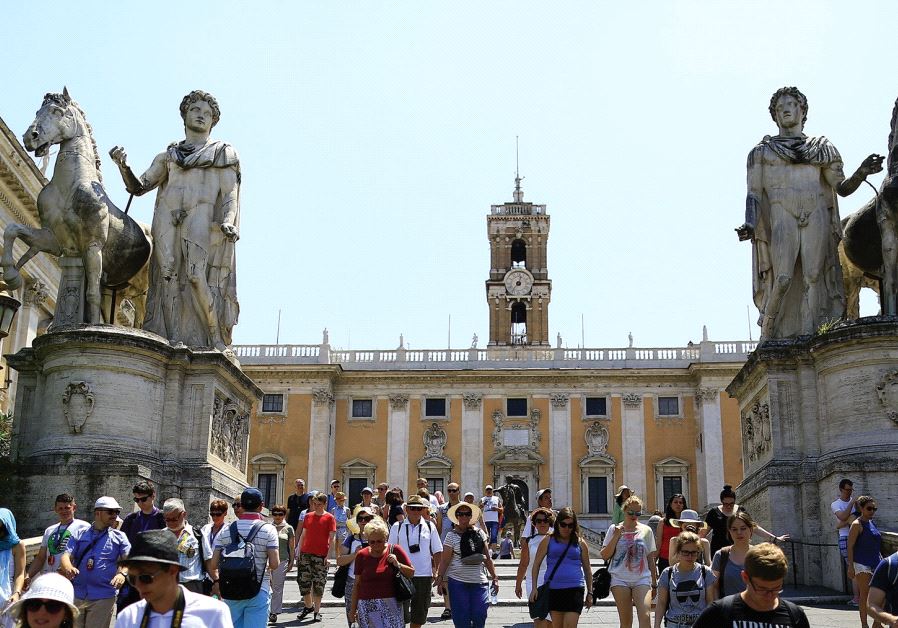Italian academics reject anti-Israel boycotts
The BDS movement has recently been in the headlines in Italy, but luckily it's receiving the proper backlash it deserves.
 ROME’S CITY HALL, ‘Campidoglio,’ site of a recent controversy over boycotting Israel.ByEMANUELE G. DALLA TORRE
ROME’S CITY HALL, ‘Campidoglio,’ site of a recent controversy over boycotting Israel.ByEMANUELE G. DALLA TORRE